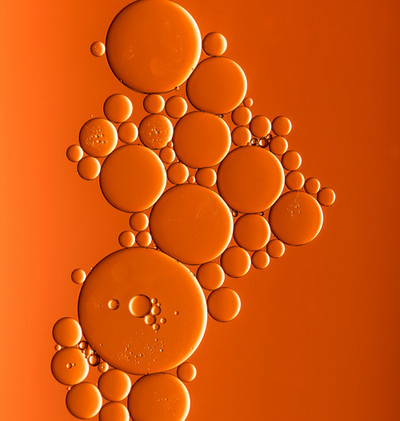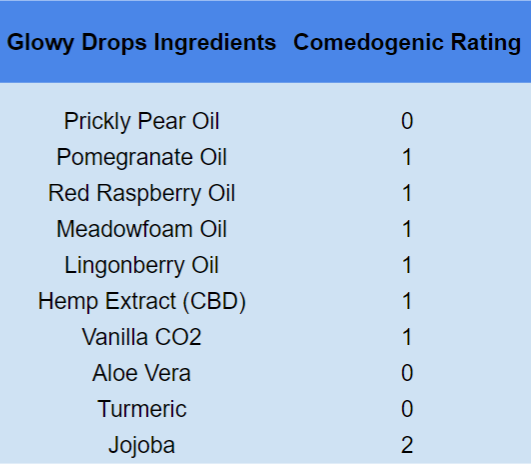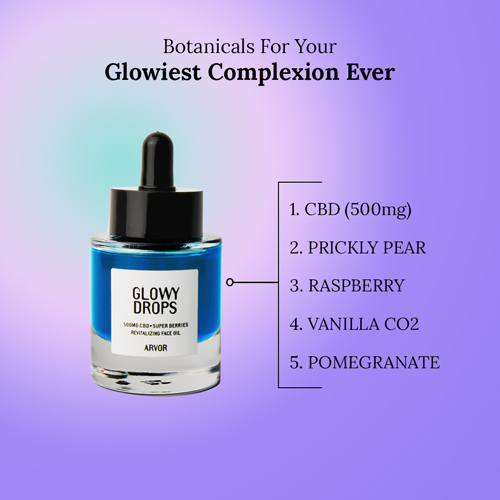Facial Oils For Acne-Prone Skin
Mar 19th 2024
When it comes to skincare for acne-prone or oily skin, the idea of using oils might seem counterintuitive. After all, aren't oils notorious for clogging pores and exacerbating breakouts? Contrary to popular belief, certain oils can actually work wonders for balancing sebum production, calming inflammation, and nourishing the skin without causing acne flare-ups. In this in-depth guide, we'll explore the science behind oils for acne-prone and oily skin and recommend some of the best oils to incorporate into your skincare routine for a clearer, healthier complexion.
Understanding the Science: How Oils Can Benefit Acne-Prone and Oily Skin
First, let's dispel the myth that all oils are bad for acne-prone or oily skin. While it's true that some oils can exacerbate breakouts, others possess unique properties that make them beneficial for maintaining skin health and managing acne. Here's how oils can benefit acne-prone and oily skin:
Balancing Sebum Production
One of the primary causes of acne is excessive sebum (oil) production, which can clog pores and contribute to the formation of pimples. Certain oils, such as meadowfoam oil and squalane, closely mimic the skin's natural sebum and can help regulate oil production, preventing the skin from overproducing oil in response to dryness.
Anti-inflammatory Properties
Acne is often accompanied by inflammation, redness, and swelling. Many oils, including red raspberry and pomegrante, possess anti-inflammatory properties that can help calm irritated skin, reduce redness, and promote healing.
Antimicrobial Effects
Some oils, such as tumeric and neem oil, exhibit potent antimicrobial properties that can help combat acne-causing bacteria (Propionibacterium acnes) and prevent the formation of new blemishes.
Nourishing and Hydrating
Despite their lightweight texture, many oils are rich in essential fatty acids, vitamins, and antioxidants that nourish and hydrate the skin. This helps maintain the skin's moisture barrier, preventing dryness and dehydration without clogging pores.
Choosing the Right Oils: Key Factors to Consider
Not all oils are created equal, and choosing the right oils for acne-prone or oily skin requires careful consideration. Here are some key factors to keep in mind when selecting oils for your skincare routine:
Non-comedogenic
Opt for oils that are non-comedogenic, meaning they are less likely to clog pores and cause breakouts. Look for oils with a low comedogenic rating (0-2) to minimize the risk of acne flare-ups. We only formulate with non-comedogenic ingredients so you never have to worry about any ingredients that have the potential to clog your beautiful pores.
Glowy Drops CBD Facial Oil is formulated with non-comedogenic ingredinents so you can use enjoy the powerful benefits without worring about clogged pores.
Lightweight Texture
Oils with a lightweight texture, such as prickly pear oil, raspberry oil, and pomegrante oil, are ideal for oily or acne-prone skin as they absorb quickly and don't leave a greasy residue.
Anti-inflammatory and Antimicrobial Properties
Choose oils with proven anti-inflammatory and antimicrobial properties, such as tea tree oil, chamomile oil, and rosehip oil, to help calm inflammation and fight acne-causing bacteria.
Rich in Essential Fatty Acids and Antioxidants
Look for oils that are rich in essential fatty acids (e.g., omega-3 and omega-6) and antioxidants (e.g., vitamin E and vitamin C) to nourish and protect the skin from environmental damage.
Best Oils for Acne-Prone and Oily Skin: Our Top Recommendations
Prickly Pear Oil
Prickly pear seed oil is rich in antioxidants, vitamins, and fatty acids, making it an excellent choice for acne-prone and oily skin. It helps regulate sebum production, reduce inflammation, and promote skin regeneration, resulting in a clearer and more balanced complexion.
Pomegranate Oil
Pomegranate seed oil is packed with antioxidants and omega-5 fatty acids, which help nourish and protect the skin from environmental damage. It has anti-inflammatory properties that can soothe acne-related redness and irritation, while its lightweight texture won't clog pores or feel greasy on the skin.
Raspberry Oil
Raspberry seed oil is known for its high concentration of essential fatty acids, including omega-3 and omega-6, which help maintain the skin's moisture barrier and prevent dehydration. It's non-comedogenic and absorbs quickly into the skin, making it suitable for oily or acne-prone skin types.
Meadowfoam Oil
Meadowfoam seed oil is prized for its emollient properties, which help lock in moisture and prevent water loss from the skin. It's lightweight, non-greasy, and suitable for all skin types, including acne-prone skin. Meadowfoam seed oil also has antioxidant properties that protect the skin from free radical damage.
Lingonberry Oil
Lingonberry seed oil is rich in vitamin E, linoleic acid, and antioxidants, which help protect the skin from environmental stressors and promote a healthy complexion. It's lightweight, fast-absorbing, and won't clog pores, making it an excellent choice for oily or acne-prone skin.
Hemp Extract / CBD Oil
Hemp extract is derived from the cannabis plant and is rich in cannabinoids, including CBD, which has anti-inflammatory and soothing properties. It helps calm acne-related inflammation, reduce redness, and promote overall skin balance. Hemp extract is non-psychoactive and won't cause any intoxicating effects when applied topically.
Incorporating Oils into Your Skincare Routine
Patch Test
Before applying any new oil to your face, perform a patch test on a small area of skin to check for any adverse reactions or sensitivities.
Start Slowly
Introduce oils into your skincare routine gradually to allow your skin to adjust. Begin with a small amount and increase the frequency or concentration as tolerated.
Layering
Oils can be used alone or layered with other skincare products, such as serums and moisturizers. Apply oils as the final step in your skincare routine to lock in moisture and provide an additional barrier against environmental stressors.
Customization
Experiment with different oils and combinations to find what works best for your skin. You can also mix oils with other skincare ingredients, such as essential oils or serums, to create personalized formulations tailored to your specific skincare concerns.
Consistency is Key
Consistent use is essential to see results with skincare oils. Incorporate them into your daily skincare routine and be patient, as it may take some time to notice improvements in your skin's texture and appearance.
Embracing the Power of Oils for Acne-Prone and Oily Skin
In conclusion, oils can be valuable allies in the battle against acne and excess oil production. By understanding the science behind oils for acne-prone and oily skin and choosing the right oils for your specific needs, you can achieve a clearer, healthier complexion without compromising on hydration or nourishment. Whether you're a newcomer to skincare oils or a seasoned enthusiast, incorporating oils into your skincare routine can help you unlock the secret to radiant, balanced skin.
Remember to prioritize consistency, listen to your skin's needs, and consult with a dermatologist or skincare professional if you have any concerns or questions about using oils for acne-prone or oily skin. With the right approach and a little experimentation, you can harness the power of oils to transform your skincare routine and achieve the glowing complexion you've always desired.


